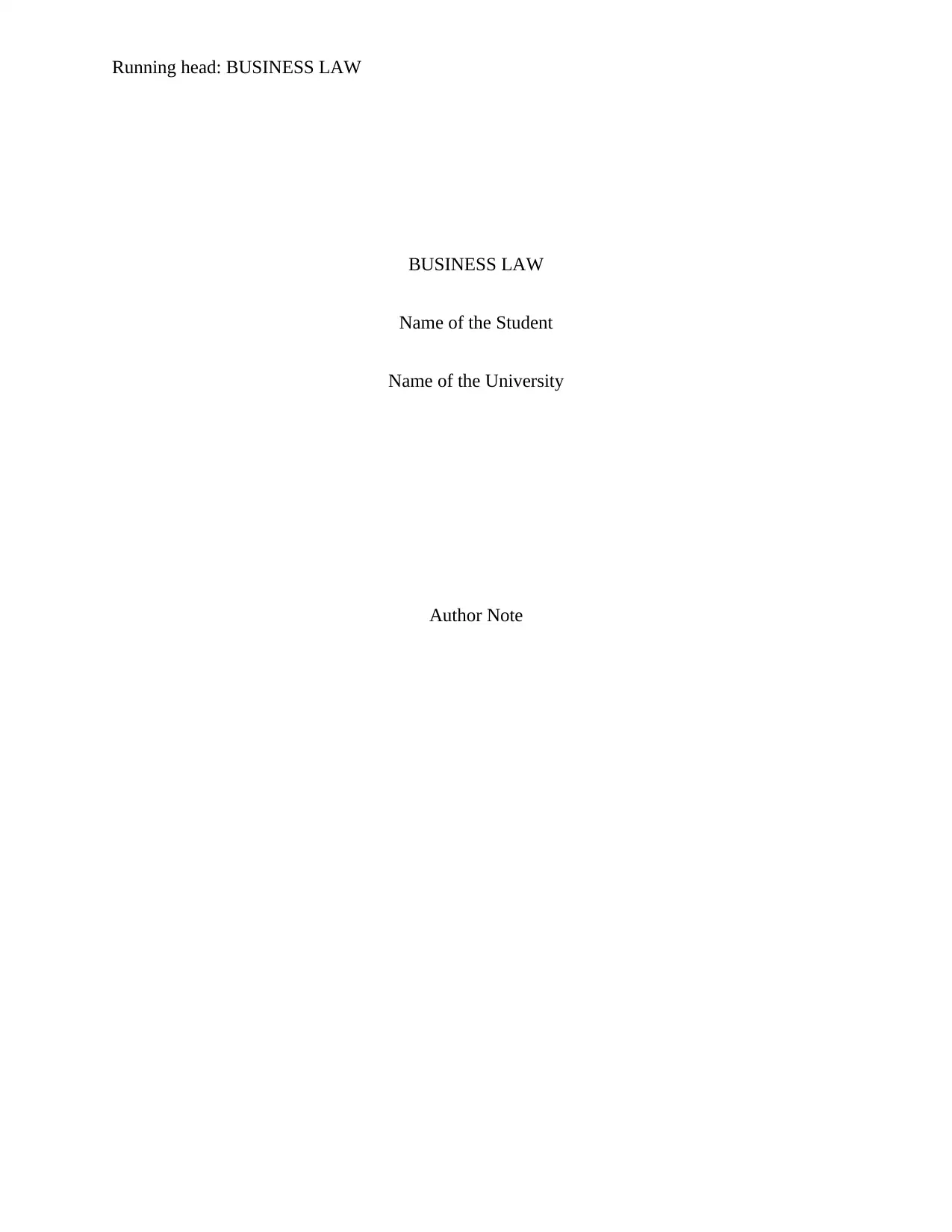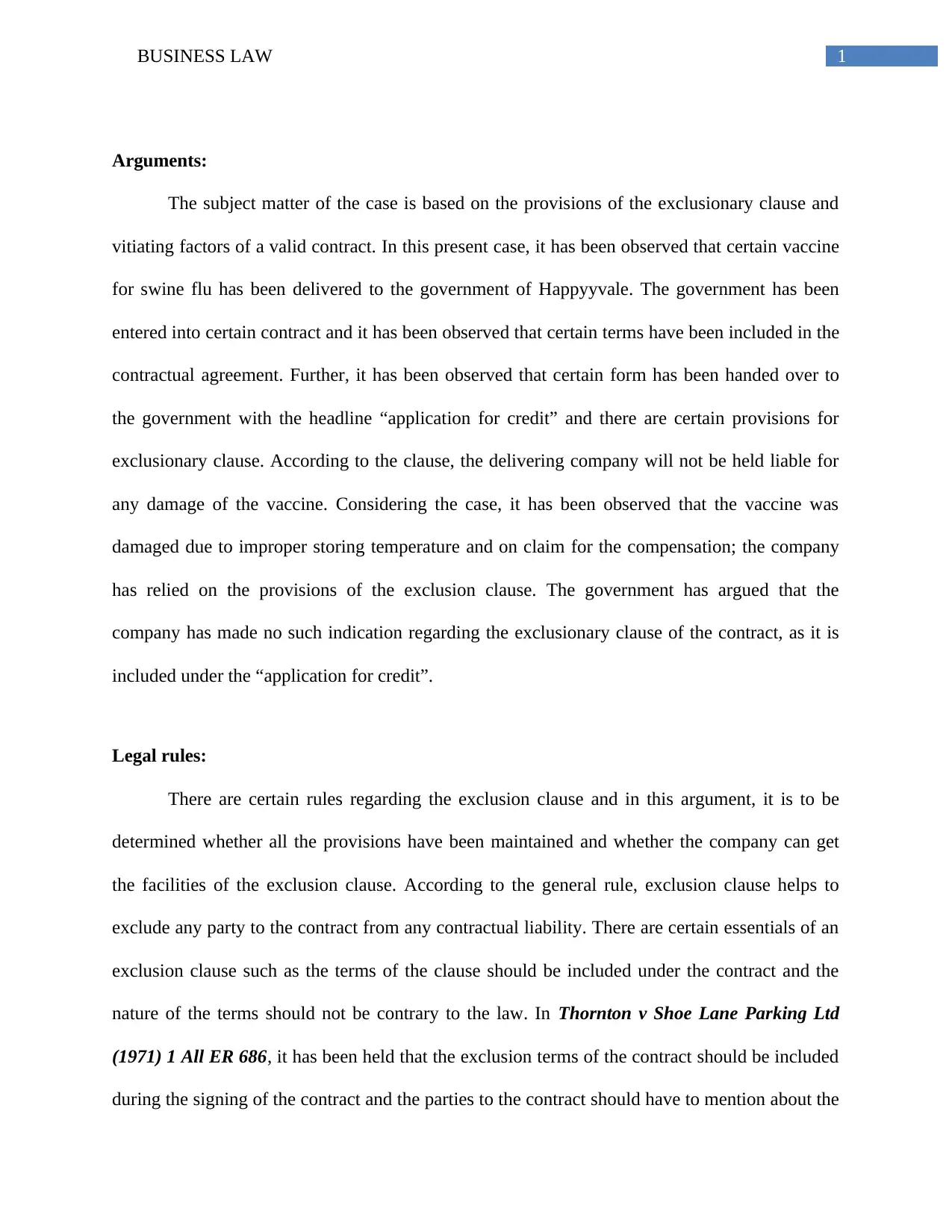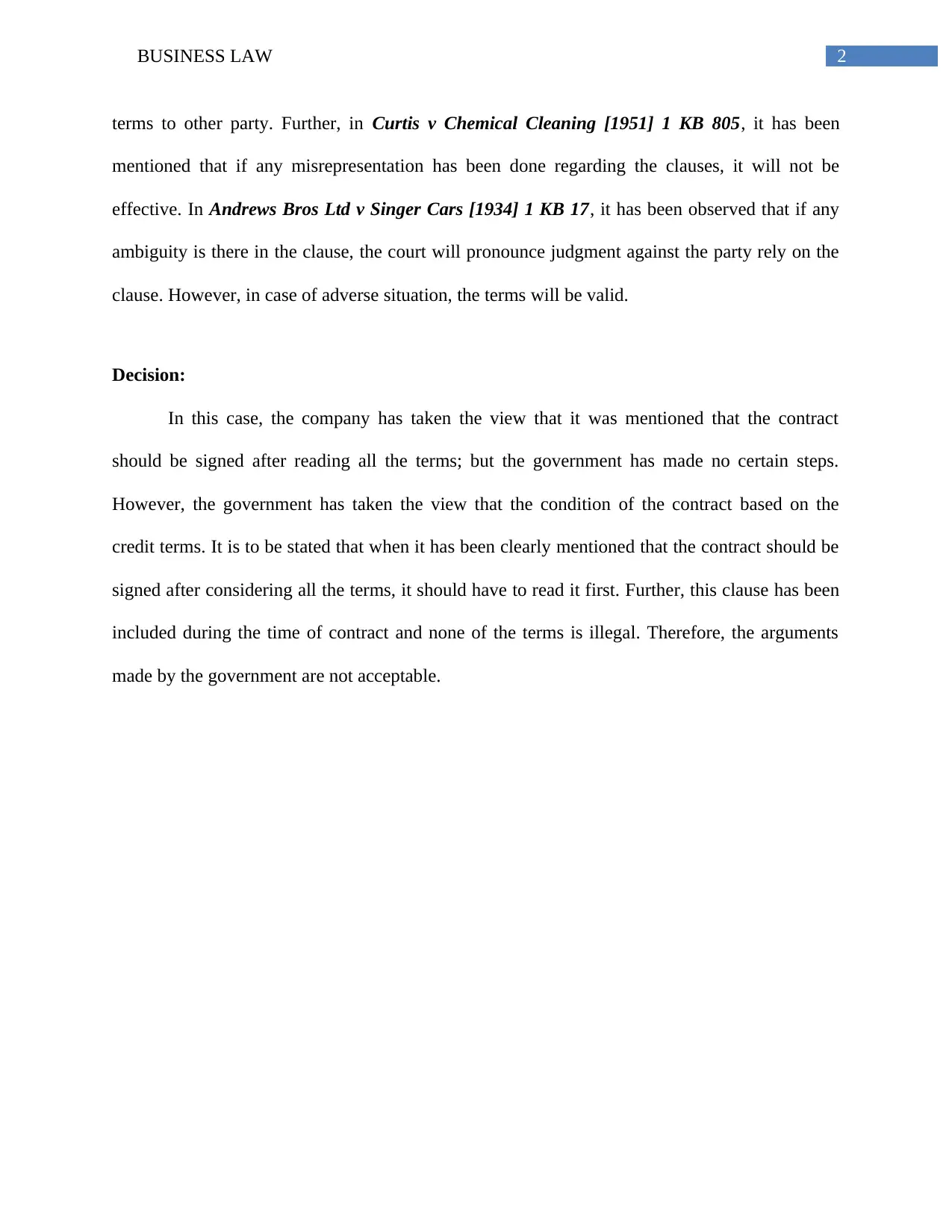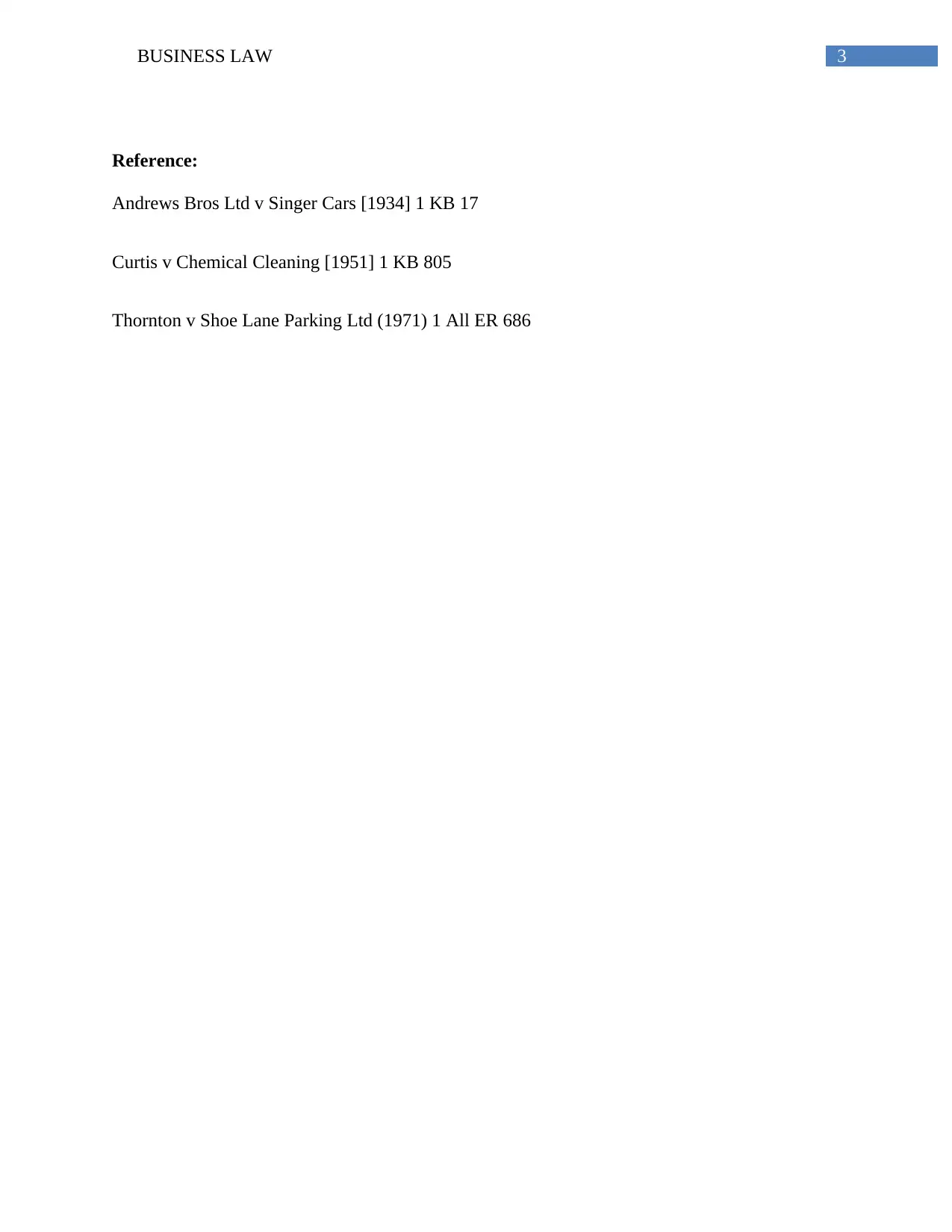Business Law: Analyzing Exclusion Clauses and Contractual Terms
VerifiedAdded on 2023/06/10
|4
|618
|297
Case Study
AI Summary
This case study analyzes a legal dispute concerning the applicability of an exclusion clause in a contract between the government of Happyvale and Medic Transports regarding the transportation and storage of swine flu vaccines. The core issue revolves around whether Medic Transports can be exempted from liability for vaccine damage caused by improper storage temperatures, given the exclusion clause included in a form titled "application for credit" signed by the Minister of Health. The analysis involves examining legal rules pertaining to exclusion clauses, including requirements for proper inclusion in the contract, absence of misrepresentation, and clarity of terms, referencing relevant case law such as Thornton v Shoe Lane Parking Ltd, Curtis v Chemical Cleaning, and Andrews Bros Ltd v Singer Cars. The decision argues that since the contract stipulated that all terms should be read before signing and the clause wasn't illegal, the government's arguments are not acceptable, favoring the company's reliance on the exclusion clause. Desklib provides access to similar solved assignments and resources for students.
1 out of 4









![[object Object]](/_next/static/media/star-bottom.7253800d.svg)